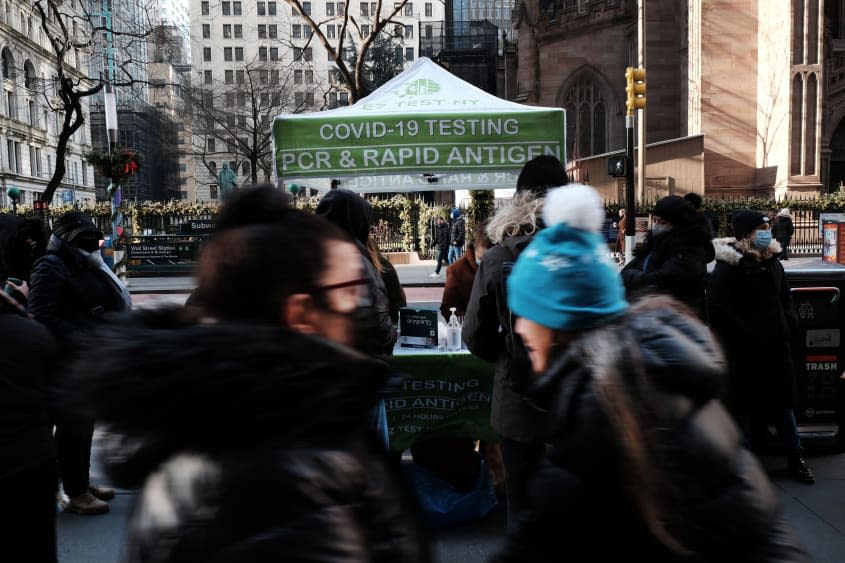Omicron: A wave of infection ripples through the economy

The smartest insight and analysis, from all perspectives, rounded up from around the web:
Widespread "Omicron absenteeism" poses a new threat to the country's economic recovery, said Shawn Donnan in Bloomberg. An estimated 5 million workers were forced to quarantine at home last week, thanks to the highly transmissible Omicron variant. The number of workers who called in sick decimated the airline industry around the holidays, and it's now "becoming a reality in factories, grocery stores, and ports." Restaurants like the Ledo Pizza chain in the Washington, D.C., area have had to close their doors or operate fewer hours to account for staff shortages, while "160 longshoremen at West Coast ports tested positive" in a single day last week, straining the supply chains. Even if the economic hit is "temporary, as most anticipate, it could slow a fragile rebound."
The airlines are really scrambling, said Alison Sider in The Wall Street Journal. Worker illnesses starting the week of Christmas have led to travel disruptions that continued into this week, with roughly 30,000 flights scrubbed since Christmas Eve. Demand for travel has been booming, but the airlines operate under strict safety rules, leaving them less leeway than other industries have when short of staff. A series of severe winter storms also "created the perfect conditions for travel chaos." Passengers, though, have a right to be angry about ruined vacation plans, said Peter Coy in The New York Times. The carriers received $54 billion in federal grants "to make sure they remained staffed" during the pandemic. Then this fall, "some airline executives even bragged to Wall Street analysts" about hiring fewer employees while maintaining the same flight schedules. That said, we probably shouldn't put "all the blame on the airlines" when everyone was similarly caught off guard by the contagiousness of Omicron.
Small businesses are looking at another difficult winter, said Nadine El-Bawab in ABC News. The spread of the virus is scaring away customers just when it started to look like things were turning around. Simultaneously, inflation is raising the cost of ingredients and supplies. This time around, however, the political messaging from Democrats with this coronavirus wave is that businesses need to stay open, said Lisa Kashinsky and Susannah Luthi in Politico. Blue-state leaders had gone "further than most Republicans in shutting down businesses, enforcing social distancing, and requiring masks to tame the spread of the virus." But most Democratic leaders have "lost the stomach for strict shutdowns" and tout the effectiveness of vaccines as the reason to keep the economy humming.
Keeping businesses open won't magically fix the economy, said Catherine Rampell in The Washington Post. The December jobs report was disappointingly weak. Before the current Omicron surge, people were "still getting sick and missing work." Outbreaks at schools and day-care facilities continue to haunt working parents, health-care workers are burned out and quitting, and some older Americans have retired early due to the health risks. "Even if this Omicron wave recedes as quickly as it surged," the economy remains "at the mercy of the public health crisis, just as it was nearly two years ago."
This article was first published in the latest issue of The Week magazine. If you want to read more like it, you can try six risk-free issues of the magazine here.
You may also like
California deputy DA opposed to vaccine mandates dies of COVID-19

